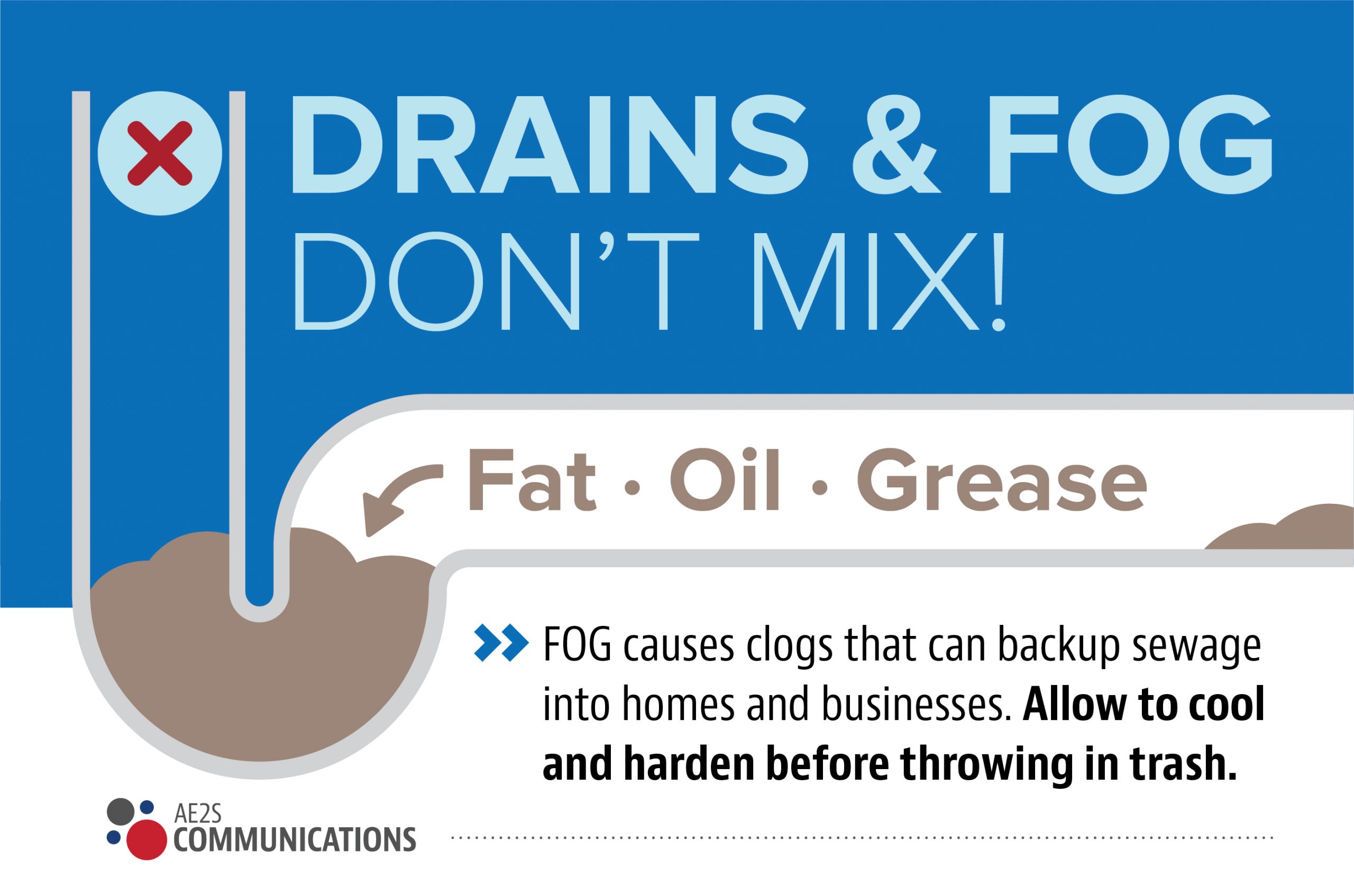The holidays may look a little different this year, with fewer people gathering in large groups due to COVID-19 concerns. But that doesn’t mean traditional foods like turkey, ham, prime rib, and gravy are off the menu. This time of year can mean big trouble for wastewater utilities when residents pour fat, oil, and grease (also known as FOG) down the drain where it can harden and clog pipes. The clogs can be expensive to fix, but they are easy to prevent.
“The best way to dispose of cooking grease is to allow it to cool and harden before throwing it away in the garbage – never down the drain,” says Scott Schaefer, AE2S Wastewater Practice Leader. “It’s never a good idea to dump FOG materials down the drain, but winter is the worst time because the cold temperatures help solidify FOG more quickly in sewer pipes. These clogs are costly for utilities to fix and can cause sewage to backup into homes.”
The Minnesota Pollution Control Agency (MPCA) created a website of information about preventing the so-called “fatbergs” from clogging sewers. A fatberg is a combination of FOG plus wipes that don’t break down easily in water like toilet paper does. The MPCA reminds people that even wipes marketed as “flushable” can still clog pipes and damage wastewater treatment plant equipment.
AE2S Communications created a graphic that can be downloaded for free and shared on social media to alert your community about the smart way to dispose of fats, oil, and grease. Download it here.

